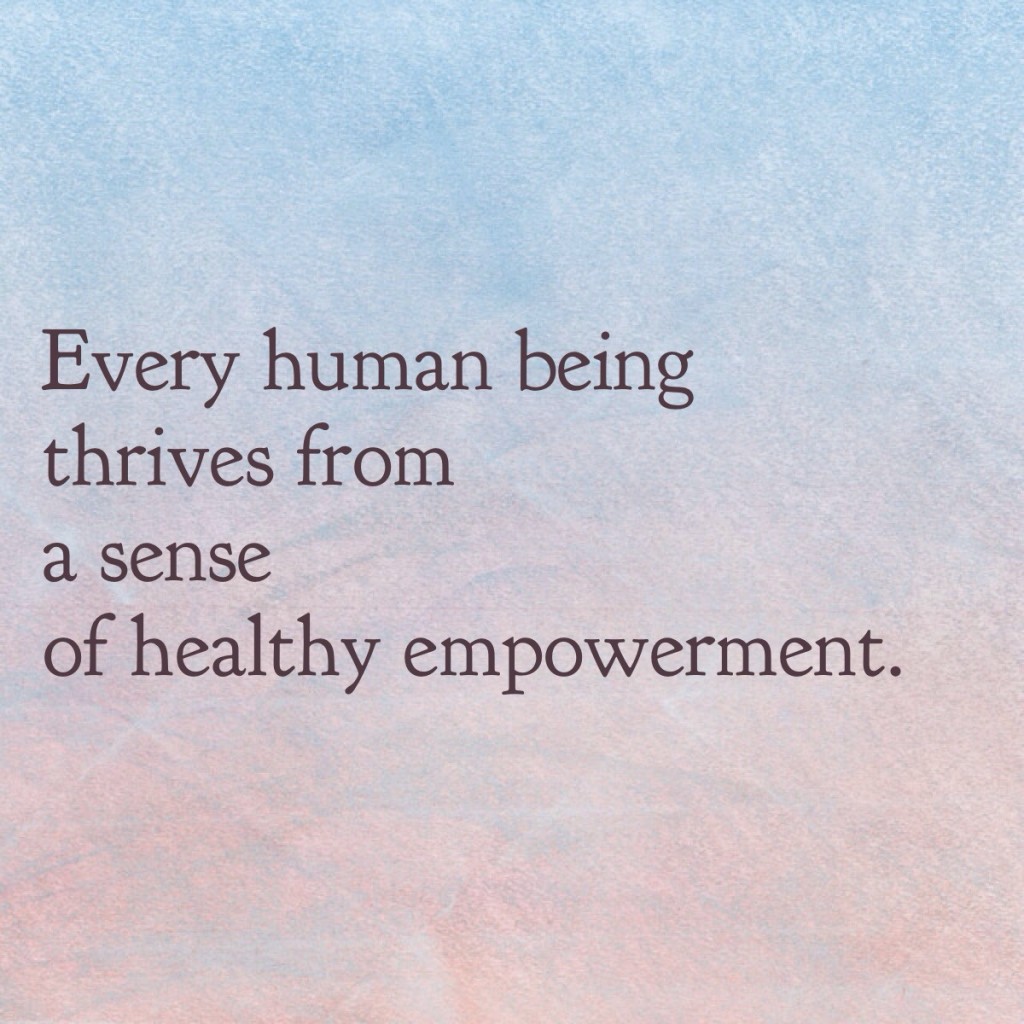
It just comes with parenting! It seems so easy to notice when our kids are behaving in ways that need improvement.
While there are many things over which we have no control, the following are ten key elements that set the tone for positive behavior. Notice that none of them refer to time outs or spankings. If you are a modern parent who is ready to release self defeating discipline patterns and give birth to a style that is free from suffering and judgment, read on. It holds everyone in the family responsible for the choices they make but it is done with a non-punitive, joyful, wide-open heart.
10 Ways You Can Encourage Positive Behavior in Your Children
1. Positive Attention: Children need authentic attention where adults are present and focused on children with an intention to enjoy being with them. Words of appreciation, a few minutes playing and enjoying each other, inviting the child to join you with no advice, judgment or motives to make improvements.
Payoff: Children who receive positive attention do not act out seeking negative attention.
2. Feeling Empowered: Every human being thrives from a sense of healthy empowerment. No one likes to be ‘bossed’ or feel like they have no say in their lives. Give your child choices when possible. Ask their opinions. Appreciate their creative outlook even when their taste is different from yours.
Payoff: Children who feel empowered do not act out to feel powerful.
3. Model Positive Behavior: Be the example you wish your child to copy. Be conscious of the way you display your own anger and frustration. Talk with your kids about feelings and help each other find better ways of reacting to negative buttons. If you are yelling or screaming, do not expect your kids to do it better.
Payoff: Children do not hit or yell to solve problems.
4. Clear, Consistent Guidelines: Clarify your family’s ‘way of being.’ What do you believe about the way we treat people, animals, the earth, possessions, etc. Does your behavior reflect your values? Are you consistent? Are you hypocrites? Can you support each other to be the people you truly want to be? Kids need to know that it is OK to mess up but our vision remains clear.
Payoff: Children who have clear guidelines do not push limits.
5. Consistent Routines: It takes about three weeks of doing something the same way for it to become a routine. It is so worth the effort! Once you have your morning and evening routines in place you will find it unnecessary to nag or threaten. Do it with love and with a playful spirit and it will pay off tenfold.
Payoff: Children know what is expected and do not have to be nagged or threatened.
6. Laugh Out Loud Together: A home where there is laughter, trust and positive expectations is a place where people can transcend the challenges that life brings. Make a conscious choice to lighten things up and be playful in the moment.
Payoff: Children who feel safe do not have to lie or be sneaky.
7. Love Them Exactly As They Are: Be a ‘love detective.’ Find at least one quality each day that your child already possesses and let him/her know that you appreciate it and are so grateful that he/she is your kid! No improvement is necessary in that moment.
Payoff: Children who feel loved want to be cooperative.
8. Learn from Mistakes: Create an atmosphere in your home that says, ‘Go for it!’ Honor the courage and process that is part of going out of one’s comfort zone. Recognize that teasing can be hurtful. Most people who are famous for their greatness made mistakes along the way.
Payoff: Children who are not afraid to make mistakes are usually willing to try harder.
9. Help Them Take Responsibility for the Choices They Make: You want your kids to know that they are not victims and get to make choices all the time. With each choice comes responsibility and a chance to try again. You will encourage your child to be responsible if he is not afraid of punishment.
Payoff: When there is less fear of retribution there is more willingness to take responsibility for one’s actions.
10. Think With Your Head but Act From Your Heart: As parents, we can allow fear and the opinion of others to dictate our relationship with our children. Remember that it is your head that houses the whirlwind of thoughts that result in stress, anger and resentment. Take a breath, move to your heart and ask yourself what would ‘love’ do? If it doesn’t feel good, don’t act.
When you feel the energy of your heart warm your body you are better prepared to deal with the subject at hand. You can then teach your children to make the same shift from being reactive to cultivating inner peace before handling stressful situations.
Payoff: This directly impacts your relationship with your children throughout your life and is the principle behind profound peace and unconditional love.
GO FOR IT. YOU AND YOUR KIDS ARE WORTH IT!
[x_author title=”About the Author”]
[x_share title=”
Share this Post
” facebook=”true” twitter=”true” google_plus=”true” linkedin=”true” pinterest=”true” email=”true”]


YESYESYES!!!! I love it! Thank You Sandi!
That is nice to definitely find a site where the blogger knows what they are talking about.
I wanted to express Thank You for providing this information, you’re carrying out a great job
it is useful for me, I like the website. My english is not te best but i understand your idea. I try to be a love father.
I grateful you for taking the time to discuss this. It is highly helpful for me.